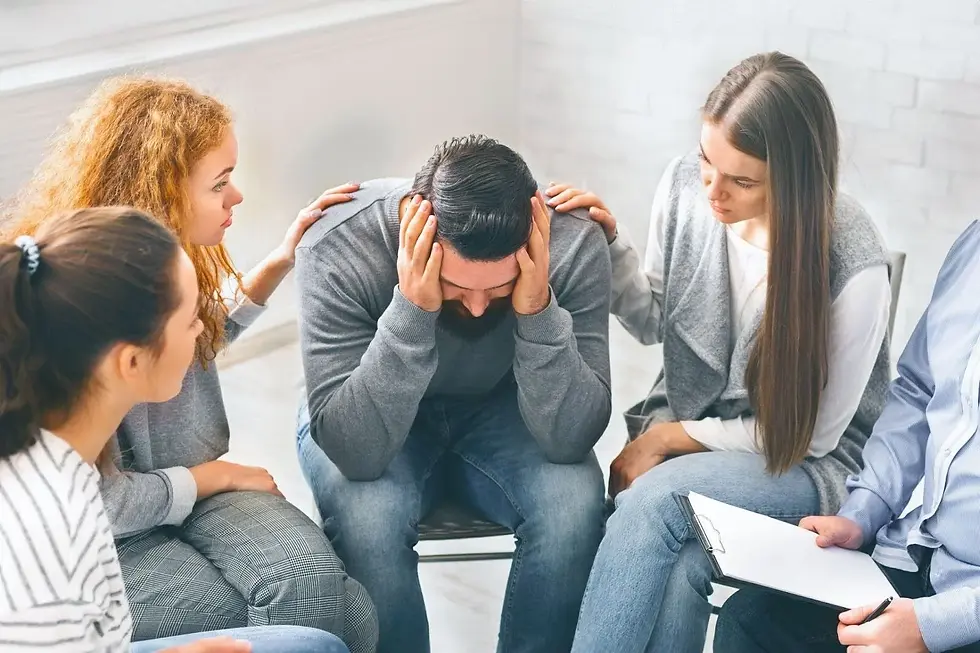New Drugs, New Dangers: Staying Ahead of Emerging Substances in Sober Living Dallas
- springhillrecovery
- Jul 6
- 3 min read
The Drug Landscape is Changing—Fast
Addiction treatment is no longer just about alcohol, heroin, or cocaine. In today’s rapidly evolving substance landscape, new and often unregulated drugs are becoming more prevalent—especially among younger users. From synthetic cannabinoids and benzos to “research chemicals” like 2C-B or kratom, these substances pose complex dangers that are often underestimated. In Dallas, these newer drugs are showing up in detox centers, ERs, and even within recovery spaces. At Spring Hill Recovery, our sober living Dallas program equips residents with the education, accountability, and awareness necessary to navigate this shifting terrain.
The Rise of Novel Psychoactive Substances (NPS)
Novel psychoactive substances, or NPS, are chemically engineered to mimic the effects of traditional drugs while skirting legal classification. Substances like delta-8 THC (a cannabinoid similar to delta-9, found in marijuana), designer benzos, synthetic opioids, and herbal alternatives like kratom can be easily purchased online or in smoke shops. Because they’re often legal or semi-legal, users assume they are safe—but these drugs are poorly studied and can have unpredictable or dangerous effects.
In Dallas, delta-8 products are commonly marketed as “legal weed,” yet they can still impair judgment, trigger psychosis in vulnerable users, and lead to failed drug screens. Synthetic benzos are often stronger than prescription varieties and can be dangerously addictive. These new substances challenge even seasoned recovery professionals, as their risks and withdrawal symptoms are not always well understood.
Why New Drugs Pose a Unique Threat in Recovery
For men in early recovery, curiosity or a false sense of security can lead them to experiment with these substances. They may rationalize use by saying, “It’s not real weed,” or “It’s not on the test.” But addiction is not about legality—it’s about compulsion, escape, and loss of control. These newer substances bypass the mind’s defenses and reactivate old cravings, opening the door to full relapse.
At Spring Hill Recovery, we educate our residents on the hidden risks of emerging substances. Our clinical partners provide psychoeducation on how these chemicals interact with the brain and why they are especially dangerous to those with a history of substance use. More importantly, our sober living Dallas community promotes open dialogue. Residents are encouraged to talk openly about what they hear, see, and feel regarding these new drugs, reducing secrecy and increasing accountability.
How Sober Living in Dallas Responds to a Changing Drug Scene
A strong sober living program doesn’t just help residents avoid substances—it prepares them to navigate a world filled with temptation and misinformation. At Spring Hill, we adapt our policies, testing protocols, and clinical education regularly to reflect the realities of Dallas’s drug environment. We test for delta-8 and synthetic cannabinoids. We monitor for kratom use. We partner with therapists who understand how trauma and mental health disorders intersect with these novel drugs.
Peer support is a cornerstone of our program. When one man is unsure whether a new product is safe, another might share how a similar choice led him down a destructive path. This real-time feedback creates a culture of responsibility and honesty—two of the most powerful tools against relapse.
Teaching Men to Stay Informed and Empowered
The men who come to Spring Hill Recovery are not just quitting drugs—they’re learning to think differently. Our goal is not to scare them into abstinence, but to empower them with knowledge and emotional maturity. We challenge residents to research what they put in their bodies, understand the consequences of their choices, and see recovery not as deprivation, but as liberation.
We also teach residents how to respond to peer pressure in sober environments. What happens when someone at a sober concert offers them a delta-8 vape? Or when a friend says kratom is “just a plant”? Role-playing, boundary-setting, and real-life planning are part of our curriculum, helping men build the confidence to say no—not just in theory, but in practice.
Recovery doesn’t exist in a vacuum. If you or your loved one is looking for a sober living home that understands today’s complex substance landscape, Spring Hill Recovery offers a men’s sober living in Dallas program that blends education, structure, and brotherhood. Stay safe, stay informed, and stay grounded in your purpose.



Comments